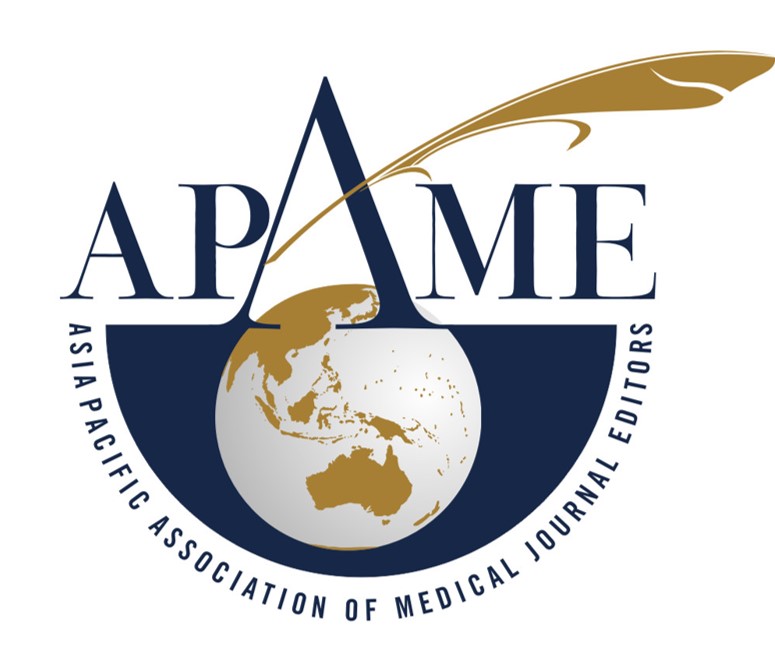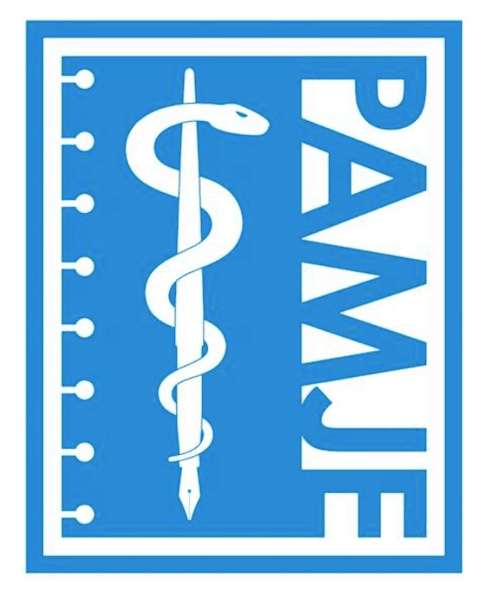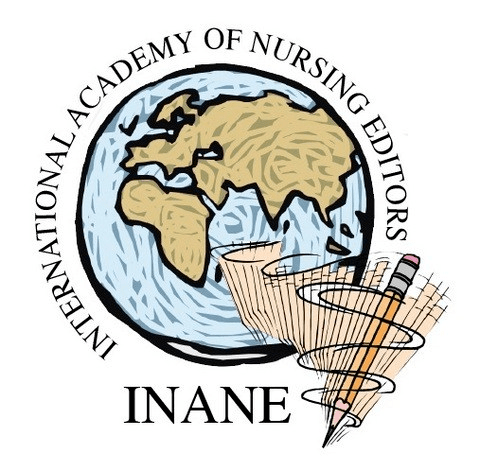Knowledge, Practices, and Attitude of University Students towards the Prevention of Viral Respiratory Infection (COVID-19)
DOI:
https://doi.org/10.37719/jhcs.2020.v2i2.oa006Keywords:
coronavirus 2, COVID-19, pandemic, severe acute respiratory syndrome, students, universitiesAbstract
Background: COVID-19 has affected the educational system, particularly students of higher educational institutions. Accurate knowledge about the disease, its transmission, and preventive measures are critical for containing an outbreak. University students, the next generation of professionals, may play an imperative role in propagating key health information to society.
Objectives: The study aims to assess the level of knowledge, the attitude of concern, and prevention practices among university students towards COVID-19 prevention.
Methods: This descriptive study was conducted at a private higher educational institution in Central Luzon, Holy Angel University. 357 university students were recruited as study participants from the university's different departments using the purposive sampling method, and data were collected using an online self-administered questionnaire.
Results: Among the 357 university students who completed the questionnaires, most were females (58.5%). The results show a good level of attitude of concern and good knowledge of clinical manifestations of COVID-19. The students' most frequently stated source of transmission is exposure to coughing and sneezing via droplets. Additionally, wearing face masks was the most reported method of protection against the infection.
Conclusion: The study revealed that university students have adequate knowledge, practices, and attitude of concern towards COVID-19. To bridge the gap between current and required knowledge, it is essential to establish further professional educational campaigns to increase university students' awareness of the pandemic.
Downloads
References
Ajilore, K., Atakiti, I., & Onyenankey, K. (2017). College students' knowledge, attitudes, and adherence to public service announcements on Ebola in Nigeria: Suggestions for improving future Ebola prevention education programmers. Health Education Journal. 76: 648-660. https://doi.org/10.1177/0017896917710969
Al-Hazmi, A., Gosadi, I., Somily, A., Alsubaie, S., &Bin Saeed, A. (2016). Knowledge, attitude, and practice of secondary schools and university students toward Middle East Respiratory Syndrome epidemic in Saudi Arabia: A cross-sectional study. Saudi Journal of Biological Sciences: 25(3):572-577. https://doi.org/10.1016/j.sjbs.2016.01.032
Buchan, J., Charlesworth, A., Gershlick, B., & Seccombe, I. (2019). A critical moment: NHS staffing trends, retention, and attrition; The Health Foundation
Centers for Disease Control and Prevention [CDC]. (2020a). Prevention & Treatment. https://www.cdc.gov/coronavirus/2019-ncov/about/prevention-treatment.html
Center for Disease Control and Prevention [CDC]. (2020b). COVID-19 and Animals. https://www.cdc.gov/coronavirus/2019-ncov/daily-life-coping/animals.html
Chen, N., Zhou M., Dong X., Qu J., Gong F., & Han Y. (2020). Epidemiological and clinical characteristics of 99 cases of 2019 novel coronavirus pneumonia in Wuhan, China: a descriptive study. Lancet, 395:507-13. https://doi.org/10.1016/S0140-6736(20)30211-7
Cohen, B., Hyman, S., Rosenberg, L., & Larson, E. (2012). Frequency of patient contact with health care personnel and visitors: implications for infection prevention. Joint Commission journal on quality and patient safety, 38(12), 560–565. https://doi.org/10.1016/s1553-7250(12)38073-2
Dean, A.G., Sullivan, K.M., & Soe, M.M. (2013). OpenERP: Open Source EpidemiologicStatistics for Public Health, Version. OpenERP. https://www.OpenEpi.com
Department of Health [DOH]. (2020). DOH COVID-19 BULLETIN #266. https://www.doh.gov.ph/covid19casebulletin266
de Wit, E., van Doremalen, N., Falzarano, D., & Munster, V. J. (2016). SARS and MERS: recent insights into emerging coronaviruses. Nature reviews. Microbiology, 14(8), 523–534. https://doi.org/10.1038/nrmicro.2016.81
Dharma, K., Khan, S., Tiwari, R., Sircar, S., Bhat, S., Malik, Y. S., Singh, K. P., Chaicumpa, W., Bonilla-Aldana, D. K., & Rodriguez-Morales, A. J. (2020). Coronavirus Disease 2019-COVID-19. Clinical microbiology reviews, 33(4), e00028-20. https://doi.org/10.1128/CMR.00028-20
Geldsetzer, P. (2020). Knowledge and Perceptions of COVID-19 among the general public in the united states and the United Kingdom: a cross-sectional online survey. Annals of Internal Medicine. https://doi.org/10.7326/M20-0912
Hornik, R. (2002). Public health communication: Evidence for behavior change. Routledge. https://www.routledge.com/Public-Health-Communication-Evidence-for-Behavior-Change/Hornik/p/book/9780805831771
Huang, C., Wang, Y., Li, X., Ren, L., Zhao, J., & Hu, Y. (2020). Clinical features of patients infected with 2019 novel coronavirus in Wuhan, China. Lancet, 395:497–506. https://doi.org/10.1016/S0140-6736(20)30183-5
Kassem, J. J. (2020). COVID-19 outbreak: is it a health crisis or economic crisis or both? Case of African Counties. SSRN Electronic Journal, 9:4–14. https://doi.org/10.2139/ssrn.3559200
Kok, F., Bouwman, L., & Desiere, F. (2008). Personalized Nutrition: Principles and Applications. CRC Press. https://doi.org/10.1201/9781420009170
Konkan, A., Foster, C., Karlis, J., Rose, I., & Tanner, A. (2012). Characteristics and influences of H1N1 communication on college students. Disaster Prevention and Management, 21(4):418-432. https://doi.org/10.1108/09653561211256134
Lindzon, J. (2020). School closures are starting, and they'll have far-reaching economic impacts. Fast Company. https://www.fastcompany.com/90476445/school-closures-are-starting-and-they’ll-have-far-reaching-economic-impacts
Majumder, M.S., Kluberg, S., Santillana, M., Mekaru, S., & Brownstein, J.S. (2015).2014 ebola outbreak: media events track changes in observed reproductive number. PLOS Currents Outbreaks. https://doi.org/101.1371/currents.outbreaks.e6659013c1d7f11bdab6a20705d1e865
McCrindle, M., & Wolfinger, E. (2011). The ABC of XYZ: Understanding the Global Generations; University of New South Wales Press
McKibbin, W. J., & Fernando, R. (2020). The global macroeconomic impacts of COVID-19: seven scenarios. SSRN Electronic Journal, 20–24. https://doi.org/10.2139/ssrn.3547729
Mohamad, E., Azlan, A. A., Hamzah, M. R., Sern, T. J., & Ayub, S. H. (2020). Public knowledge, attitudes, and practices towards COVID-19: A cross-sectional study in Malaysia. Malaysian Journal of communication, 36(1):1–2. https://doi.org/10.1371/journal.pone.0233668
Mohr, K. A. J., & Mohr, E.S. (2017) Understanding Generation Z Students to Promote a Contemporary Learning Environment. Journal on Empowering Teaching Excellence, 1(1): 9. https://doi.org/10.15142/T3M05T
Mortel, V.D., & Thea, F. (2008). Faking it: social desirability response bias in self-report research. Australian Journal of Advanced Nursing, 25, 40-48.
Ramzy, A., & May, T. (2020). Philippines Reports First Coronavirus Death OutsideChina. The New York Times. https://www.nytimes.com/2020/02/02/world/asia/philippines-coronavirus-china.html
Rakhmanov, O., & Dane, S. (2020). Knowledge and Anxiety Levels of African UniversityStudents Against COVID-19 During the Pandemic Outbreak by an Online Survey. Journal of Research in Medical and Dental Science, 8(3). 53-56.
Saefi, M., Fauzi, A., Kristiana, E., Adi, W. C., Muchson, M., Setiawan, M. E., Islami, N.N., Ningrum, D., Ikhsan, M. A., & Ramadhani, M. (2020). Survey data of COVID-19-related knowledge, attitude, and practices among Indonesian undergraduate students. Data in brief, 31, 105855. https://doi.org/10.1016/j.dib.2020.105855
Schwieger, D., & Ladwig, C. (2018). Reaching and Retaining the Next Generation: Adapting to the Expectations of Gen Z in the Classroom. Information Systems Education Journal, 16,45-54.
Seale, H., PI Mak, J., Razee, H., & McIntayre, C. (2012). Examining the knowledge, attitudes, and practices of domestic and international university students towards seasonal and pandemic influenza.BMC Public Health. 12, 307. https://doi.org/10.1186/1471-2458-12-307
Seemiller, C., & Megan, G. (2017). Generation Z: Educating and Engaging the NextGeneration of Students. Sage Journal, 22(3), 21–26. https://doi.org/10.1002/abc.21293
Strauss, W., & Howe, N. (2020, August 7). Generation, Z. http://incomeresult.com/generation-z/#cite_note-McCrindleAU-27
Tachfouti, N., Slama, K., Berraho, M., & Nejjari, C. (2012). The impact of knowledge and attitudes on adherence to tuberculosis treatment: a case-control study in a Moroccan region. Pan African Medical Journal. 12: 52. https://doi.org/10.11604/pamj.2012.12.52.1374
United Nations Educational Scientific and Cultural Organization [UNESCO]. (2020).COVID-19 Educational Disruption and Response.https://en.unesco.org/covid19/educationresponse
Wakefield, M.A., Loken, B., & Hornik, R.C. (2010). Use of mass media campaigns to change health Behaviour. The Lancet, 376(9748). https://doi.org/10.1016/S0140-6736(10)60809-4
Wang, C., Horby, P. W., Hayden, F. G., & Gao, G. F. (2020). A novel coronavirus outbreak of global health concern. Lancet, 395(10223), 470–473. https://doi.org/10.1016/S0140-6736(20)30185-9
World Health Organization [WHO]. (2020). Coronavirus disease (COVID-19) advice for the public: When and how to use masks. https://www.who.int/emergencies/diseases/novel-coronavirus-2019/advice-for-public/when-and-how-to-use-masks
Worldometer. (2020, December 6). COVID-19 Coronavirus Pandemic. https://www.worldometers.info/coronavirus/
Zhao, B., Cai, T.J., & Zhang, Z.H. (2020) Presentation and adjustment of college students’ emotional state under COVID-19 epidemic—based on the perspective of self-care. China Youth Study. https://doi.org/10.19633/j.cnki.11-2579/d.2020.0053
Zhong, B. L., Luo, W., Li, H. M., Zhang, Q. Q., Liu, X. G., Li, W. T., & Li, Y. (2020). Knowledge, attitudes, and practices towards COVID-19 among Chinese residents during the rapid rise period of the COVID-19 outbreak: a quick online cross-sectional survey. International journal of biological sciences, 16(10), 1745–1752. https://doi.org/10.7150/ijbs.45221
Zhonghua, L., Xing, B.X., Za, Z.Z., & Liuxingbingxue, Z. (2020). Novel Coronavirus Pneumonia Emergency Response Epidemiology Team. The epidemiological characteristics of an outbreak of 2019 novel coronavirus diseases (COVID-19) –China, 2020. CCDC Weekly. https://github.com/cmrivers/ncov/raw/master/COVID-19.pdf
Zhou, P., Yang, X. L., Wang, X. G., Hu, B., Zhang, L., Zhang W., Si, H. R., Zhu, Y., Li, B., Huang, C. L., Chen, H. D., Chen, J., Luo, Y., Guo, H., Jiang, R. D., Liu, M. Q., Chen, Y., Shen. X. R., Wang, X., ... Shi, Z. L. (2020). A pneumonia outbreak associated with a new coronavirus of probable bat origin. Nature, 579, 270–273. https://doi.org/10.1038/s41586-020-2012-7
Zhu, Z., Zhong, C., Zhang, K., Dong, C., Peng, H., Xu, T., Wang, A., Guo, Z., & Zhang, Y. (2020). Epidemic trend of coronavirus disease 2019 (COVID-19) in mainland China. Chinese Journal of Preventive Medicine, 54(6), 620–624. https://doi.org/10.3760/cma.j.cn112150-20200222-00163


.png)





